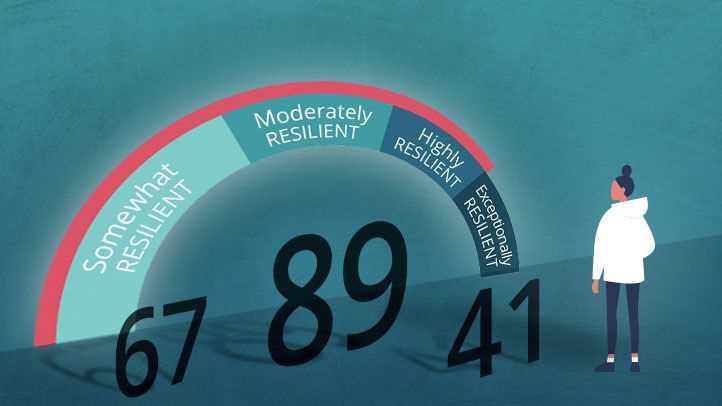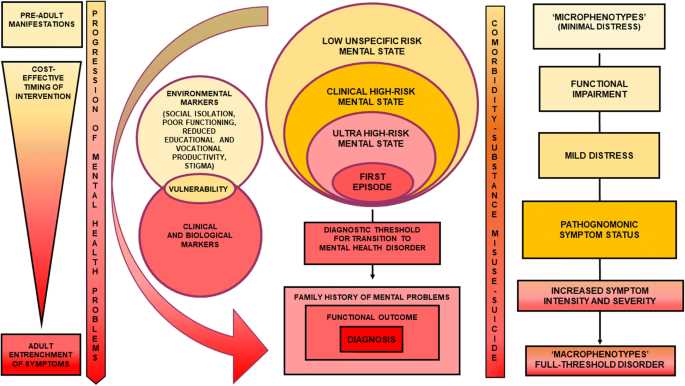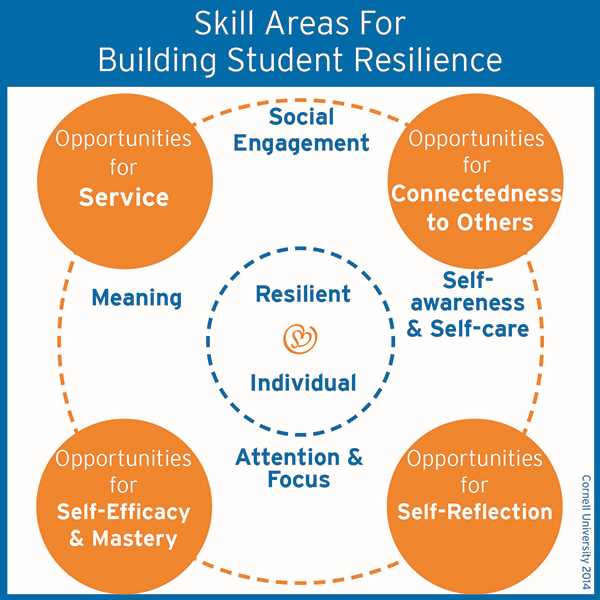
Living with psychosis can be a challenging experience, as it often comes with a range of symptoms that can affect a person’s mental well-being. Coping with these symptoms and managing stress is an essential part of the treatment and recovery process. Developing resilience strategies can help individuals with psychosis better navigate the ups and downs of their condition and improve their overall mental health.
Stress is a common trigger for psychosis symptoms, and learning effective coping mechanisms is crucial in managing its impact. By developing resilience strategies, individuals can build a toolkit of techniques to help them deal with stressors and reduce the likelihood of symptom exacerbation. These strategies may include engaging in relaxation exercises, such as deep breathing or meditation, practicing self-care activities, like getting enough sleep and engaging in hobbies, and seeking support from trusted friends, family, or mental health professionals.
Mental health professionals play a vital role in helping individuals with psychosis develop resilience strategies. They can provide guidance and support in identifying stressors, understanding the connection between stress and symptom exacerbation, and developing personalized coping mechanisms. With the help of professionals, individuals can learn to recognize early signs of stress and implement strategies to prevent the escalation of symptoms.
Building resilience is an ongoing process that requires patience and commitment. It is important for individuals with psychosis to remember that recovery is possible and that they have the power to take control of their mental health. By actively engaging in resilience-building activities and seeking support when needed, individuals can improve their overall well-being and successfully manage their symptoms of psychosis.
Building Psychosis Stress Resilience

Psychosis is a mental health condition that can cause a person to lose touch with reality. It is often characterized by symptoms such as hallucinations, delusions, and disorganized thinking. Dealing with psychosis can be extremely stressful for individuals and their loved ones.
Stress can exacerbate the symptoms of psychosis and make it more difficult for individuals to cope with their condition. Therefore, it is important for individuals with psychosis to develop resilience strategies to manage stress and promote their mental health and recovery.
One of the key aspects of building psychosis stress resilience is seeking appropriate treatment. This may involve a combination of medication, therapy, and support groups. Medication can help manage the symptoms of psychosis, while therapy can provide individuals with coping mechanisms and strategies to deal with stress. Support groups can also be beneficial, as they provide individuals with a sense of community and understanding.
In addition to seeking treatment, individuals can also develop their own coping strategies to manage stress. This may involve engaging in activities that promote relaxation and self-care, such as exercise, meditation, and hobbies. It is also important for individuals to establish a support system of friends and family who can provide emotional support during times of stress.
Building resilience is a gradual process, and it may take time for individuals to develop effective strategies for managing stress. It is important for individuals to be patient with themselves and to seek help when needed. By building resilience, individuals with psychosis can improve their mental health and overall well-being.
| Key Points |
|---|
| – Psychosis is a mental health condition characterized by symptoms such as hallucinations and delusions. |
| – Stress can worsen the symptoms of psychosis and make it more difficult to cope with the condition. |
| – Seeking appropriate treatment, such as medication and therapy, is crucial for managing psychosis and stress. |
| – Developing coping strategies, such as engaging in relaxation activities and establishing a support system, can also help manage stress. |
| – Building resilience takes time, and it is important for individuals to be patient and seek help when needed. |
Understanding Psychosis Stress

Psychosis stress refers to the stress experienced by individuals with psychosis, a mental health condition characterized by a loss of contact with reality. This stress can be caused by various factors, including the symptoms of psychosis, the challenges of daily life, and the stigma associated with mental illness.
Recovery from psychosis can be a long and challenging process, and stress can play a significant role in the course of the illness. Stress can exacerbate symptoms of psychosis, making it more difficult for individuals to cope with their condition and engage in effective treatment.
Resilience is an important factor in managing psychosis stress. Resilience refers to the ability to adapt and bounce back from adversity. Developing resilience can help individuals with psychosis better manage stress and improve their overall mental health.
Some common symptoms of psychosis stress include anxiety, depression, sleep disturbances, social withdrawal, and difficulty concentrating. These symptoms can significantly impact an individual’s quality of life and ability to function in daily life.
Coping strategies are essential in managing psychosis stress. These strategies can include seeking support from loved ones, engaging in self-care activities, practicing relaxation techniques, and participating in therapy or support groups. It is important for individuals with psychosis to find coping strategies that work for them and to incorporate them into their daily routine.
Treatment for psychosis stress may involve a combination of medication, therapy, and support services. Medications can help manage symptoms of psychosis, while therapy can provide individuals with the skills and support they need to cope with stress and improve their resilience. Support services, such as case management and peer support, can also be beneficial in helping individuals navigate the challenges of living with psychosis.
In conclusion, understanding psychosis stress is crucial for individuals with psychosis and their loved ones. By recognizing the impact of stress on mental health and developing resilience and coping strategies, individuals with psychosis can better manage their condition and improve their overall well-being.
What is Psychosis Stress?
Psychosis stress refers to the stress experienced by individuals who have psychosis, a mental health condition characterized by a loss of contact with reality. This stress can manifest in various ways and can have a significant impact on a person’s overall well-being.
Individuals with psychosis often experience symptoms such as hallucinations, delusions, disorganized thinking, and difficulties with social interactions. These symptoms can be distressing and can lead to increased stress levels.
Treatment for psychosis stress typically involves a combination of medication, therapy, and support from mental health professionals. Medications can help manage the symptoms of psychosis, while therapy can provide individuals with coping strategies and support to navigate their experiences.
Recovery from psychosis stress is possible with appropriate treatment and support. It is important for individuals with psychosis to engage in self-care practices, such as getting enough sleep, eating a balanced diet, and engaging in regular physical activity, to support their mental health.
Coping with psychosis stress can be challenging, but there are strategies that individuals can use to manage their stress levels. These may include practicing relaxation techniques, engaging in activities that bring joy and fulfillment, seeking support from loved ones, and participating in support groups or therapy.
Overall, psychosis stress is a significant component of mental health for individuals with psychosis. By understanding and addressing this stress, individuals can work towards improving their overall well-being and mental health.
Causes of Psychosis Stress
Psychosis stress can be caused by a variety of factors, including:
- Mental health conditions: Psychosis can be a symptom of various mental health disorders, such as schizophrenia or bipolar disorder. These conditions can cause significant stress and impact an individual’s daily life.
- Genetic factors: There is evidence to suggest that certain genetic factors may increase the risk of developing psychosis. This genetic predisposition can contribute to the stress experienced by individuals with psychosis.
- Environmental factors: Stressful life events, such as trauma or abuse, can trigger or worsen symptoms of psychosis. These external factors can contribute to increased stress levels.
- Substance abuse: Substance abuse, particularly the use of drugs like cannabis or hallucinogens, can induce psychosis or exacerbate existing symptoms. The combination of substance abuse and psychosis can lead to heightened stress levels.
- Neurochemical imbalances: Imbalances in certain neurotransmitters, such as dopamine, can contribute to the development of psychosis. These imbalances can impact an individual’s ability to cope with stress and manage their mental health.
Understanding the causes of psychosis stress is essential for effective treatment and recovery. By addressing these underlying factors, individuals can develop coping mechanisms and strategies to manage stress and improve their overall mental health.
Symptoms of Psychosis Stress
Psychosis stress can have a significant impact on mental health and well-being. It is important to recognize the symptoms of psychosis stress in order to seek appropriate treatment and develop effective coping strategies.
Some common symptoms of psychosis stress include:
- Delusions: Individuals experiencing psychosis stress may have false beliefs that are not based in reality. These delusions can be paranoid or grandiose in nature.
- Hallucinations: Psychosis stress can also manifest in the form of auditory or visual hallucinations. These sensory experiences may be distressing and contribute to feelings of anxiety and fear.
- Disorganized thinking: A symptom of psychosis stress is often disorganized thinking, which can make it difficult for individuals to communicate or express themselves coherently. They may experience a jumbled or fragmented thought process.
- Difficulty concentrating: Psychosis stress can impair concentration and focus, making it challenging to complete tasks or engage in activities that require sustained attention.
- Social withdrawal: Individuals experiencing psychosis stress may withdraw from social interactions and isolate themselves from others. This can lead to feelings of loneliness and exacerbate symptoms of stress.
- Emotional instability: Psychosis stress can cause intense mood swings and emotional instability. Individuals may experience heightened anxiety, depression, irritability, or agitation.
- Sleep disturbances: Sleep problems, such as insomnia or disrupted sleep patterns, are common symptoms of psychosis stress. These disturbances can further contribute to feelings of fatigue and exacerbate mental health symptoms.
Recognizing these symptoms is an important step towards developing resilience and seeking appropriate treatment for psychosis stress. It is essential to consult with a mental health professional who can provide guidance and support in managing these symptoms effectively.
Strategies for Mental Health
Mental health is a crucial aspect of overall well-being, and it is important to have strategies in place to promote and maintain good mental health. These strategies can help individuals cope with stress, recover from mental health issues such as psychosis, and build resilience.
- Treatment: Seeking professional help and adhering to treatment plans is essential for managing mental health conditions. This may include therapy, medication, or a combination of both.
- Coping mechanisms: Developing healthy coping mechanisms can help individuals navigate challenging situations and reduce stress. This may include activities such as exercise, practicing mindfulness, or engaging in creative outlets.
- Recovery support: Having a strong support system is crucial for the recovery process. This can include friends, family, support groups, or mental health professionals who can provide guidance and encouragement.
- Stress management: Learning effective stress management techniques can help individuals prevent and reduce the impact of stress on their mental health. This may include time management, relaxation techniques, and setting boundaries.
- Building resilience: Resilience is the ability to bounce back from adversity. Developing resilience can be achieved through building strong relationships, practicing self-care, and cultivating a positive mindset.
By implementing these strategies, individuals can improve their mental health, manage stress, cope with psychosis or other mental health issues, and work towards a healthier and more fulfilling life.
Developing a Support Network
When dealing with the symptoms of psychosis, it is important to have a strong support network in place. Having a support network can provide the necessary assistance and guidance during treatment and recovery.
One way to develop a support network is to start by reaching out to friends and family. They can offer emotional support and understanding during difficult times. It is important to communicate openly about the challenges faced and to ask for help when needed.
In addition to friends and family, it can be helpful to connect with others who have experienced similar challenges. Support groups and online communities provide a space to share experiences and learn from others who have gone through similar mental health journeys. These communities can offer valuable insights and tips for coping with stress and building resilience.
Professional support is also crucial in developing a support network. Mental health professionals, such as therapists, psychologists, or psychiatrists, can provide guidance and treatment options. They can help individuals develop coping strategies, manage stress, and navigate the recovery process.
Finally, self-care is an important aspect of developing a support network. Taking care of one’s mental and physical health is essential for resilience and recovery. This can include activities such as exercise, practicing mindfulness or meditation, and engaging in hobbies or interests that bring joy and relaxation.
In conclusion, developing a support network is an essential part of building resilience and managing stress in the face of psychosis. By reaching out to friends, family, support groups, and mental health professionals, individuals can find the necessary support and guidance on their path to recovery.
Practicing Mindfulness and Meditation

When it comes to coping with the symptoms of mental health conditions such as stress and psychosis, building resilience is crucial for recovery. One effective strategy that can contribute to resilience is practicing mindfulness and meditation.
Mindfulness involves being fully present in the moment and non-judgmentally aware of one’s thoughts, feelings, and sensations. By cultivating mindfulness, individuals can develop a greater sense of self-awareness and become more attuned to their mental and emotional states.
Meditation, on the other hand, involves the intentional focusing of attention to achieve a mentally clear and emotionally calm state. Through regular meditation practice, individuals can learn to quiet their minds, reduce stress, and improve their overall well-being.
Research has shown that mindfulness and meditation can have a positive impact on mental health. They can help reduce symptoms of stress, anxiety, and depression, which are often associated with psychosis. Additionally, practicing mindfulness and meditation can improve cognitive function, enhance emotional regulation, and promote a sense of inner peace.
Building resilience through mindfulness and meditation involves dedicating time each day to engage in these practices. This can be done through guided meditation sessions, mindfulness exercises, or simply taking a few moments to focus on one’s breath and observe any thoughts or sensations that arise.
It’s important to remember that building resilience takes time and consistent effort. Starting with short meditation sessions and gradually increasing the duration can be a helpful approach. Additionally, seeking guidance from a qualified mindfulness or meditation instructor can provide valuable support and guidance on the journey towards improved mental health and resilience.
Overall, practicing mindfulness and meditation can be powerful tools for building resilience and coping with the symptoms of mental health conditions such as stress and psychosis. By incorporating these practices into one’s daily routine, individuals can cultivate greater self-awareness, reduce stress, and enhance their overall mental well-being.
Engaging in Regular Exercise
Regular exercise is an essential component of coping with mental health issues, including psychosis. Engaging in physical activity can help build resilience, reduce stress, and support treatment and recovery.
Exercise has been shown to have numerous benefits for mental health. It can help improve mood, reduce symptoms of depression and anxiety, and increase overall well-being. For individuals experiencing psychosis, regular exercise can play a crucial role in managing symptoms and promoting recovery.
Physical activity can help reduce stress, which is often a significant factor in the development and exacerbation of mental health conditions. By engaging in exercise, individuals can release built-up tension and improve their ability to cope with stressors. This can lead to increased resilience and a greater sense of control over one’s mental health.
Additionally, exercise can support the effectiveness of other treatment approaches for psychosis. It can enhance the impact of medication and therapy, making them more effective in managing symptoms and promoting recovery. Regular physical activity can also improve cognitive function, including attention and memory, which can be impaired in individuals with psychosis.
There are many different types of exercise that individuals can engage in to support their mental health. These include aerobic exercises such as running or swimming, which can help improve cardiovascular health and release endorphins, natural mood-boosting chemicals in the brain. Strength training exercises, such as weightlifting or yoga, can help build physical and mental resilience.
It is important for individuals to find an exercise routine that they enjoy and can commit to regularly. This can help ensure that exercise becomes a sustainable part of their mental health care plan. Setting realistic goals and gradually increasing the intensity and duration of exercise can also help individuals stay motivated and see the benefits over time.
| Benefits of Regular Exercise for Mental Health |
|---|
| Improved mood |
| Reduced symptoms of depression and anxiety |
| Increased overall well-being |
| Reduced stress |
| Enhanced effectiveness of medication and therapy |
| Improved cognitive function |
In conclusion, engaging in regular exercise is a crucial strategy for building resilience and coping with mental health issues, including psychosis. By incorporating physical activity into their treatment and recovery plan, individuals can improve their overall well-being, reduce stress, and enhance the effectiveness of other therapeutic interventions.

I am Patrina de Silva, a psychologist and mental health blogger in Sri Lanka. After obtaining psychology degrees from the University of Colombo and Monash University, I returned home to work as a counselor while also starting the popular blog “Pressy but Happy” to provide advice on psychological issues. Over the past decade, my empathetic articles have made my blog a leading mental health resource in the country. In addition to writing, I maintain a private therapy practice, frequently volunteer counseling time, and conduct seminars, driven by my passion for destigmatizing mental illness and educating the public on the mind-body connection. I strive to be an influential voice in my field through my compassionate approach.
